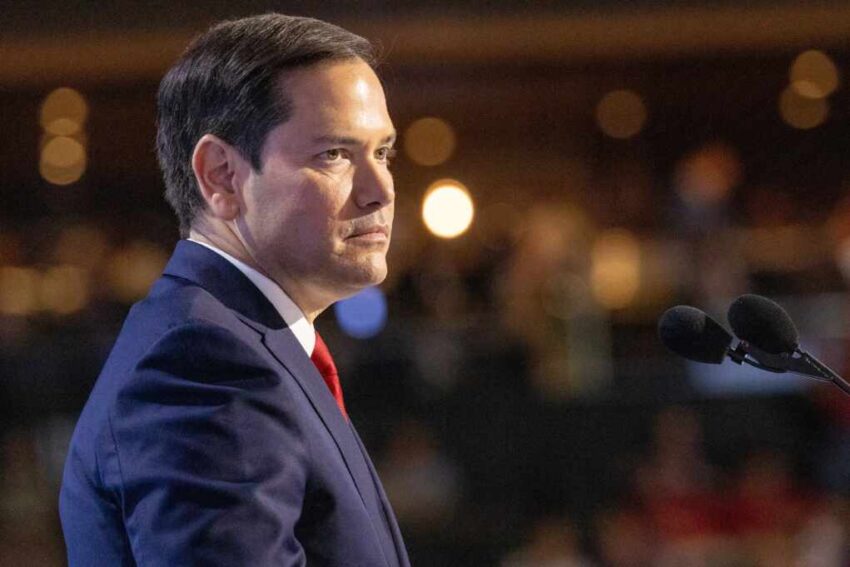U.S. Secretary of State Marco Rubio has designated Venezuelan-linked criminal groups as global terrorists, enabling the Trump administration to use full counterterrorism powers against them.
At a Glance
- Criminal organizations tied to Venezuelan President Nicolás Maduro labeled as terrorist groups
- Designations announced on August 7, 2025 by U.S. Secretary of State Marco Rubio
- New policy allows asset freezes, travel bans, and expanded law enforcement cooperation
- Move aims to disrupt transnational networks combining crime and terrorism
- Step heightens U.S.-Venezuela tensions and raises risk of diplomatic retaliation
New Terrorist Designations
On August 7, 2025, U.S. Secretary of State Marco Rubio announced the formal designation of multiple criminal organizations with direct links to Venezuelan President Nicolás Maduro as global terrorist groups. The action marks a sharp policy shift by the Trump administration, which had previously classified such entities under organized crime statutes rather than counterterrorism law.
The new classification grants the U.S. government the ability to deploy a full suite of counterterrorism measures, including freezing assets within U.S. jurisdiction, imposing comprehensive travel restrictions on members, and intensifying coordination between federal agencies and international partners. Officials described the move as part of a broader effort to counter the intersection between organized crime and state-backed terrorism, which the administration views as a growing threat to national security.
Watch now: Rubio Says Intel Community is “Wrong” on Tren de Aragua · YouTube
By framing the problem through a terrorism lens, policymakers intend to disrupt these groups’ funding pipelines and operational mobility, as well as to signal zero tolerance for state sponsorship of illicit networks.
Strategic and Diplomatic Impact
The decision has intensified already strained relations between Washington and Caracas. The Maduro administration, which faces longstanding U.S. sanctions over corruption and human rights abuses, has denounced past American measures as interference in Venezuela’s domestic affairs. With the new designations, diplomatic tensions could escalate further, as the U.S. broadens the scope of its security-based restrictions.
Regional analysts note that the designations may prompt countermeasures from Venezuela and allied states, potentially affecting trade, migration, and security cooperation in Latin America. The administration, however, has framed the policy as necessary to prevent the expansion of criminal-terrorist networks and to protect the U.S. homeland from foreign-origin threats.
Broader Policy Implications
Beyond its immediate operational effects—such as asset freezes and interdictions—the move could influence how other governments apply terrorism designations in cases where criminal activities are closely tied to political regimes. U.S. officials believe that defining these networks as terrorist organizations creates stronger legal frameworks for multinational enforcement actions and sends a deterrent message to states accused of enabling them.
Critics caution that such measures carry risks, including humanitarian impacts on civilian populations indirectly affected by the sanctions and potential retaliation in diplomatic or economic domains. They also question whether expanding the terrorism label to include certain criminal enterprises may dilute its effectiveness in international law.
Still, supporters argue that the interconnected nature of modern security threats demands flexible definitions and robust tools. The Trump administration’s approach aligns with its emphasis on national sovereignty, strategic deterrence, and the use of economic and legal instruments to confront perceived adversaries.
The long-term effectiveness of the policy will depend on sustained enforcement, international cooperation, and the resilience of targeted groups under pressure. If successful, it may serve as a precedent for countering hybrid threats that operate at the intersection of crime and terrorism in other regions.
Sources
Click this link for the original source of this article.
Author: Editor
This content is courtesy of, and owned and copyrighted by, https://deepstatetribunal.com and its author. This content is made available by use of the public RSS feed offered by the host site and is used for educational purposes only. If you are the author or represent the host site and would like this content removed now and in the future, please contact USSANews.com using the email address in the Contact page found in the website menu.








